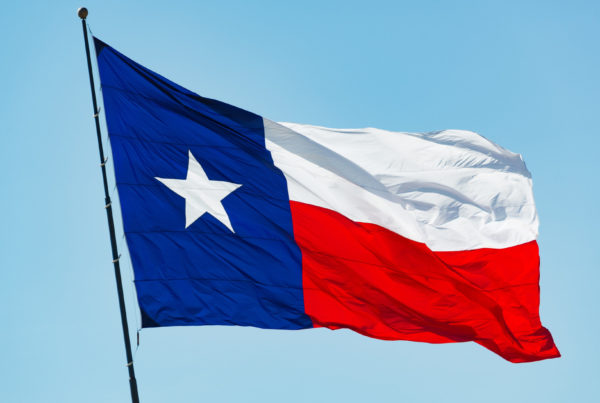Jessica Goudeau grew up learning myths about her family history that tied closely to the myth she knew about her home state of Texas.
Goudeau’s family lived in the Lone Star State for seven generations, and after an off-hand comment from a relative, she started digging deeper into her ancestors’ roles in much of Texas’ mythology and history.
In her new book, “We Were Illegal: Uncovering a Texas Family’s Mythmaking and Migration,” Goudeau traces her family’s legacy and uncovers a complicated group of people and stories – living in a much more complicated place than she imagined as a child.
Goudeau said the title of her book comes from another book by Gloria Anzaldúa called “Borderlands/La Frontera.”
“I read it in college, and she talks about Anglos who came to Texas illegally when it was part of Mexico. And it had never occurred to me that my ancestors coming to Texas came ‘illegally,’ and I want to keep those quotes around it when we talk about this,” she said.
“But it really reframed my way of thinking about this, that this was contested land and that my family coming here were not the center of history, but maybe came in a different way. There was a different story than the one I originally understood.”
Goudeau was inspired to look into her own family history after writing her first book, “After the Last Border: Two Families and the Story of Refuge in America,” which was published in 2020.
“It’s about two former refugees who came to the United States and lived here in Austin. And as I was reporting that book and then reporting several other stories about immigration, I got really curious about my own family’s immigration,” she said.
“I knew we had lived in Texas for (at least) four generations on every side, but I didn’t know anything other than that. Where did we come from and how did we even get here? So I began this project just kind of as a personal way to understand how I came here. And the more I dug, the more fascinating stories I found.”
The book focuses on six different ancestors. Goudeau picked people in her family tree but not necessarily those she directly descends from.
“I look at, for example, the nephew of my seventh great-grandfather, who was a roommate of Stephen F. Austin’s, and I found all of these people who were alive in what felt like really tumultuous times,” Goudeau said. “I’m a parent and I’m a professor, and I’m someone who cares about the future, and I really have been wrestling with how do I raise my children? How do I help my community, in a time when things feel so extreme and polarized and tumultuous?
So this book really began by me asking that question: ‘how did my relatives live through extreme times?’ And I ended up finding six different time periods that felt as precarious as this one. And those were the stories I focused on.”
Goudeau said the goal of this project was to disentangle some of the myths she grew up learning as a Texan.
“I think most myths are like gossip that is passed down over generations, and that continues to shift and change. And (I was) really trying to understand what actually happened. Who were these people? What did they do? What did they say?,” Goudeau said. “There’s a real move right now in Texas to kind of stick our fingers in their ears and not really understand what happened in the past. I think most people don’t want to feel uncomfortable.
I think what’s actually better for us, though, is to face the hard truths of the past. And in doing that, we are free to move forward and make different kinds of choices. I don’t want anyone to walk away feeling guilty. … My goal is to really understand the truth of what happened. And when we understand that truth, then to make better decisions – to find moral courage in this complicated time as we move forward.”
Goudeau doesn’t see this effort as rewriting history so much as expanding on our existing knowledge.
“Texas is really new. There are trees in my yard that are as old as the state of Texas. And I think understanding that this is something that we’re still working out… It’s not like there’s thousands of years of history that we’re now trying to rewrite,” she said.
“We’re really grappling with what happened, what is happening and what will happen. And I think as we grapple with it, that feels really important to allow there to be some flexibility and some, you know, new knowledge that will teach us new things about who we are and what happened here in this land.”
In doing this work, Goudeau said she is building off information other family members have collected in the past.
“When I began to look into the history of my family’s past, it didn’t feel like I was the first one. I was taking up the mantle that’s been passed on by my grandparents and my parents,” she said.
“I’m so grateful to have had a chance to really understand who my family really was. There are some hard things, but there are also some really wonderful things and some ancestors who had real moral courage. And I’m so grateful to have discovered stories that I didn’t know that really give me a more complete picture of who my family was.”













